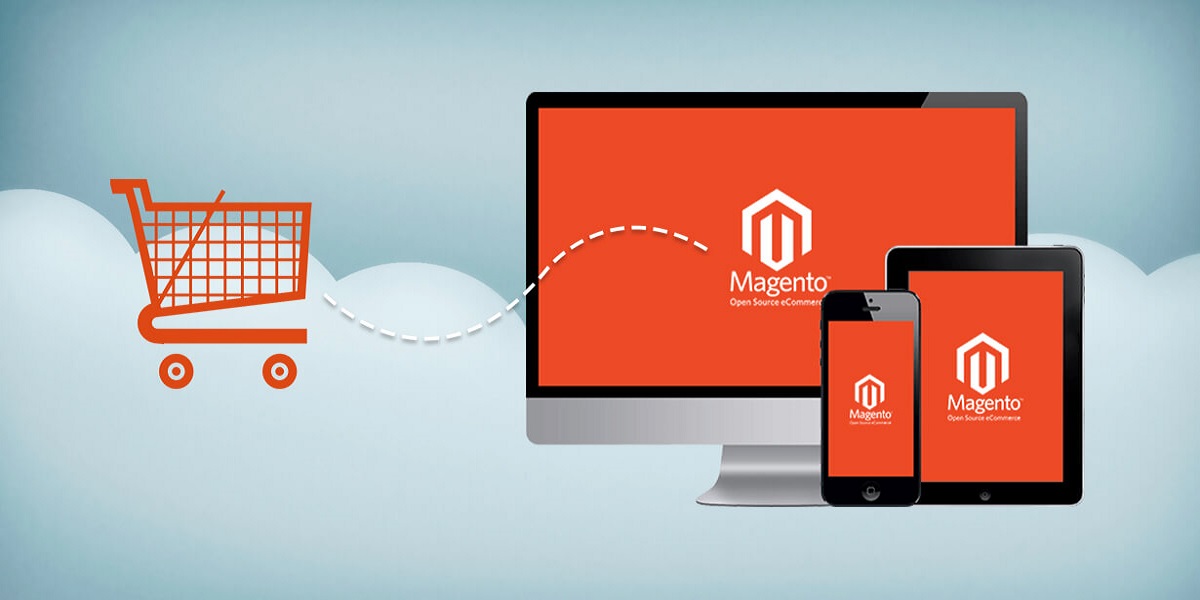
The Essential Guide to eCommerce Development With Magento in 2021
- By Amaira Patel
- 26-03-2021
- E-commerce
eCommerce was growing steadily even before the pandemic. But with markets shut down and consumers stuck at home, online shopping exploded. Small and large businesses alike had to rely on online transactions as never before. And it drove a growing need for reliable eCommerce solutions. As merchants rushed to create digital-first business operations, the role of eCommerce platforms got more crucial. That’s where services like Magento eCommerce development came into play.
In this post, we will discuss how Magento is powering businesses to cope with the evolving market. Magento has emerged as a top choice among merchants looking for a dynamic online store. The rising popularity of Magento is due to its incredibly evolved eCommerce capabilities. It offers seamless product listing, analytics-based inventory management, and a powerful CMS, among other features. Let’s dive deeper to understand how Magento could boost your online business.
What is Magento?
Magento is a PHP-based Commerce development platform. Its latest version is Magento 2. The eCommerce framework enables merchants to “create an engaging, shoppable experience. It’s available in two different editions: Magento Open Source and Magento Commerce (previously known as Magento Enterprise).
Magento Open Source vs. Magento Commerce
Magento Open Source offers an open-source, freely downloadable framework to build your online store from the ground up. This version is for those who need an all-in-one cloud-based solution optimized for Magento. Experienced eCommerce developers can easily customize the solution for your online store.
Magento Commerce is a premium version of the eCommerce platform. Businesses choose it for a flurry of merchant-friendly features, including page builder, UX management, integrated B2B commerce, and content management. Magento Commerce ensures enterprise performance, scalability, business intelligence, among other things. Besides, users get dedicated technical support ready to resolve their queries and issues promptly.
An overview of top Magento advantages
• Magento makes it easier to build and manage an online
store with advanced features.
• Boundless scalability means your store can grow
smoothly with business expansion.
• Magento Marketplace offers unique themes, extensions, &
many other eCommerce tools.
• Magento enables you to manage multiple stores in
different languages & currencies.
• It’s compatible with both business-to-business (B2B) and business-to-consumer (B2C) eCommerce.
How Magento Bolsters Your Online Selling Capabilities
Magento enables you to use next-gen eCommerce capabilities. Combined with a global eCommerce ecosystem and a vast extension marketplace, the platform could take your business to a new level. Below are some of the most striking ways Magento can transform your eCommerce operations.
Establish your brand
If you run a small- or mid-sized business, you might have considered listing goods on marketplaces like Amazon. Or you may already be selling on such marketplaces. But having your own online store is a different — and more profitable — story altogether. Magento enables you to create a brand presence by launching your own eCommerce site.
With your own online store, your business is more easily identifiable. It’s crucial for succeeding in the competitive landscape of online commerce. You could choose either the Open Source or Enterprise edition of Magento depending on your requirements and budget.
Customize shopping experiences
Personalization is key to boosting sales and customer loyalty. Magento has features like customer segmentation that let you create deeply personalized buying experiences. You could create eCommerce features based on customers’ location, gender, and purchase history, among other things. Additionally, with Magento Commerce, you could target unknown site visitors based on their product views.
Leverage responsive design
Online stores built on the Magento framework are incredibly responsive. That means whether a customer visits your site from a mobile, a desktop, or a tab, they will get the same seamless experience. Such responsive stores are also operating system agnostic. Whether it’s iOS, Android, or Windows, the online stores perform optimally.
Implement visual merchandising
The way you display products on the site has a critical impact on conversions. No customer likes to buy from an online store with an unattractive product showcase. Magento allows you to create compelling product displays using simple drag-and-drop functionality. Plus, you could enable product sorting rules like ordering products by best sellers, highest margin, newest additions, etc.
Manage content effortlessly
Content is king in the digital world, as well. eCommerce is no exception. Only the sites with an impactful content presentation get the desired sales. And that’s where the role of an efficient CMS comes into the picture. Magento offers cutting-edge CMS capabilities that help you create immersive shopping experiences. Besides, the premium version provides a feature-rich dashboard to manage everything related to content.
Wrapping up
We began by talking about how the pandemic prompted a global eCommerce boom. Let’s wrap this up by reckoning the role of technology in the post-COVID eCommerce market. Experts believe shopping behaviors of 2020 will stick even after the coronavirus is brought to heel. That means you need advanced eCommerce capabilities to stay ahead in the race. Only platforms like Magento can help to build a deeply personalized store with next-gen features. I hope this blog will help you make an informed eCommerce decision.
Read more posts,
10 Ways To Improve Traffic On WordPress Website
How To Integrate Payment Gateway In Mobile Apps
TikTok Advertising: Useful Tips To Run Successful Ads In 2021
Recent blog

Crafting Eye-Catching Instagram Reels In Just 9 Easy Steps
Social Media | 25-04-2024.png)
Boost Sales and Conversions with Shopify's New AI-Powered Semantic Search
E-commerce | 24-04-2024




